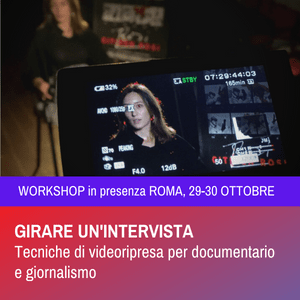The director premiered his new film on the trial of Aldo Braibanti for plagiarism. Present the interpreters Luigi Lo Cascio, Elio Germano, Leonardo Maltese and Sara Serraiocco
On the occasion of the preview at the Venice Film Festival of his latest film in competition entitled The lord of the ants, Gianni Amelio met with the press to answer the numerous questions of those present. The film tells the true story of the plagiarism trial of Aldo Braibanti, one of the darkest pages in the history of Italian justice. In addition to the director, Luigi Lo Cascio, Elio Germano, Leonardo Maltese, Sara Serraiocco and Anna Caterina Antonacci were present.
The protagonist Aldo Braibanti treats female characters in a bad way in several moments. The impression is that of a vague misogyny, is that what you wanted to show?
Gianni Amelio: absolutely not, in the film Braibanti scolds both males and females without distinction of gender, he was not a person who tried to please everyone. I didn’t want to sanctify him in any way, in the film he is arrogant and presumptuous both with the judges and with the younger ones. The true misogynist is the character with a Calabrian accent who speaks of homosexuality as a disease that would require suicide. That is a sentence that I entered because I personally happened to hear it. The female characters, on the other hand, represent a more than varied spectrum of being a woman in that historical moment. Braibanti’s mother is a strong but sweet and understanding old-fashioned woman, while Ettore’s mother decides she wants to cure her “deviant” son, but in any case she should not be judged because she is simply the daughter of her time. The journalist’s sister, on the other hand, is the modern sixty-eight-year-old woman who fights for her ideals, a real minority in those years that I remember with great clarity.
Braibanti is to all intents and purposes an all-rounder, an intellectual with a boundless culture. How did you approach the character and what peculiarity of his person helped you?
Luigi Lo Cascio: many things, but first of all I was struck by the fact of not knowing him, I made myself a bit disgusted (laughs). What enlightened me was what Carmelo Bene, which for me is essential, wrote about him. For him he was a teacher, especially for the way he recited the lines, and so I realized I had to pay attention to the way this man expressed himself.
His character has something different than the others, a more modern and contemporary vision.
Elio Germano: meanwhile mine is an invented character so my work was totally different. He feels in constant conflict with those around him, who makes intellectual honesty his banner. Nowadays the same thing happens, those who do not sell themselves, those who do not bend and decide to follow an honest and personal vision of him are often opposed or fired. My character disagrees with the editorial staff of the Unit, with the PCI, but above all with the political persecution against Braibanti.
The family of the boy “victim” of Braibanti seems to have changed their surname.
Gianni Amelio: no, actually it was I who wanted to change the surnames of the people involved, apart from that of Braibanti of course. I didn’t want to make it personal and in this way I believe I have created symbolic and universal characters, children of their time.
In your opinion, is this absurd case able to tell something about our times?
Gianni Amelio: the moment we are living I find it very disturbing, I live it with a lot of embarrassment. A hasty and unclear election campaign moreover. But just look around to see continuous episodes of intolerance. A politician says we have to “settle” for civil unions, while a woman in a video on the net calls the police after seeing two girls kissing. There hasn’t been progress yet but I’m confident in the future, woe to not. With this film I wanted to help someone feel understood, understood and accepted.
Your character collides with the bigotry of the Italian Communist Party. How have things changed since those years?
Elio Germano: those were the years of movementism, years of fervor in which alternative ways were sought with respect to that historical and immutable party. In my opinion at the moment citizens are just consumers, they are not listened to and nobody cares about their opinion. But they have a voice and an opinion, despite what “they” would like. Parliamentary representation is certainly a problem to be solved, it is inconceivable that there is a large part of the Italian population that does not feel represented in parliament in any way. In this sense, what is left of the PCI, and I really don’t know what I’m referring to (laughs), should think about it thoroughly, starting with individual freedoms.
# Venezia79 – The lord of the ants. Meeting with Gianni Amelio and the cast




